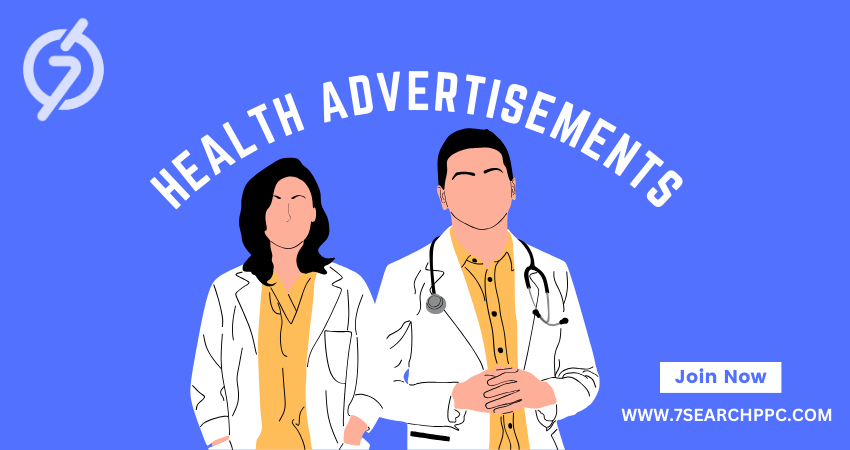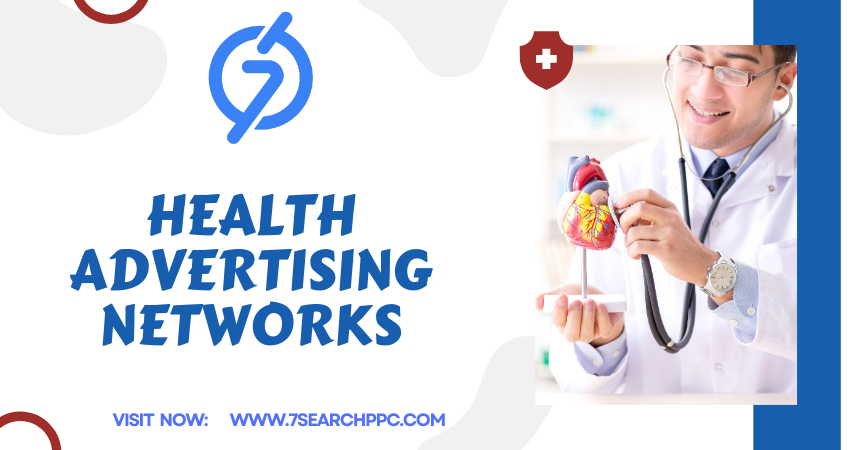 Zapier Automation – Automate Publishing. Free Your Time!
Zapier Automation – Automate Publishing. Free Your Time!
The Impact of Positive Health Advertisements
Written by Pharmacy Advertising » Updated on: June 17th, 2025

Health advertisements play a crucial role in shaping public perceptions, influencing behavior, and driving awareness about various health-related issues. With the rise of digital media, healthcare ads have become more pervasive, reaching audiences through various channels. This blog will explore the impact of positive health advertisements, focusing on how they influence public health outcomes, the strategies behind their success, and the role they play in promoting healthier lifestyles.
The Power of Health Advertisements
Health advertisements are designed to educate, inform, and motivate the public to adopt healthier behaviors. These ads can cover a wide range of topics, from promoting healthy eating and exercise to raising awareness about specific diseases or health conditions. The power of health advertisements lies in their ability to reach a broad audience and convey important messages that can lead to positive changes in individual and community health.
The Role of Health Advertisements in Public Health
Public health campaigns often rely on health advertisements to disseminate crucial information to the masses. These ads are used to raise awareness about pressing health issues such as smoking, obesity, mental health, and infectious diseases. By leveraging mass media, public health authorities can reach large segments of the population, educating them about risks and encouraging preventive measures.
The Psychology Behind Health Advertisements
Understanding the psychology behind health advertisements is key to creating effective campaigns. Positive health advertisements, in particular, tap into human emotions such as hope, fear, and empathy to drive behavior change. By framing health messages positively, advertisers can inspire individuals to take proactive steps toward better health.
For instance, an ad campaign promoting exercise may focus on the benefits of staying active, such as improved mood, increased energy levels, and a longer lifespan. By highlighting these positive outcomes, the ad encourages viewers to see exercise not as a chore but as a rewarding activity that enhances their overall well-being.
The Influence of Digital Media on Health Advertisements
The advent of digital media has transformed the landscape of health advertisements. Social media platforms, websites, and mobile apps have become essential channels for delivering health messages to the public. Digital media allows for more targeted and personalized healthcare ads, ensuring that the right message reaches the right audience at the right time.
Moreover, digital health advertisements often incorporate interactive elements such as quizzes, challenges, and personalized health tips, making them more engaging and effective. For example, a fitness app might send personalized workout reminders based on the user's activity level, encouraging them to stay on track with their fitness goals.
Positive Health Advertisements: A Catalyst for Change
Positive health advertisements are those that focus on the benefits of adopting healthy behaviors rather than solely highlighting the risks of unhealthy habits. These ads are designed to motivate and empower individuals to make positive changes in their lives by showcasing the rewards of healthy living.
The Benefits of Positive Health Advertisements
Positive health advertisements offer several advantages over traditional fear-based approaches. While fear can be a powerful motivator, it can also lead to anxiety, denial, and avoidance. In contrast, positive health advertisements promote a sense of empowerment and self-efficacy, encouraging individuals to take control of their health.
For example, a campaign promoting healthy eating might focus on the delicious and nutritious meals that can be prepared with fresh, whole ingredients. By showcasing appetizing dishes and the joy of cooking, the ad appeals to the viewer's desire for a fulfilling and enjoyable lifestyle, making it more likely that they will adopt healthier eating habits.
Successful Positive Health Advertisements
Several successful campaigns have demonstrated the effectiveness of positive health advertisements. One notable example is the "Eat Brighter!" campaign, which encouraged children to eat more fruits and vegetables by featuring popular Sesame Street characters on packaging and in ads. By associating healthy foods with beloved characters, the campaign made healthy eating fun and appealing to young audiences, leading to increased fruit and vegetable consumption among children.
The Role of Emotion in Positive Health Advertisements
Emotion plays a central role in the success of positive health advertisements. By evoking feelings of joy, pride, and hope, these ads create a strong emotional connection with the audience, making the message more memorable and impactful. For example, an ad that shows a family enjoying a hike together not only promotes physical activity but also reinforces the emotional benefits of spending quality time with loved ones.
In addition to positive emotions, these ads often use narratives and storytelling to make the message more relatable. For instance, a healthcare ad that shares a personal story of someone overcoming a health challenge can inspire others to take action in their own lives. This emotional resonance can lead to increased motivation and a greater likelihood of behavior change.
The Broader Impact of Healthcare Ads
Healthcare ads, including positive health advertisements, have a broader impact on society beyond individual behavior change. These ads contribute to shaping public discourse around health, influencing policy decisions, and driving social change.
Shaping Public Perceptions of Health
Healthcare ads play a significant role in shaping public perceptions of health and wellness. By consistently promoting positive health messages, these ads can help normalize healthy behaviors and make them more culturally accepted. For example, ads that promote mental health awareness can reduce stigma and encourage more people to seek help when needed.
Moreover, healthcare ads can also challenge harmful stereotypes and misconceptions about health. For instance, campaigns that promote body positivity and diversity in health can help combat unrealistic beauty standards and promote a more inclusive understanding of health and wellness.
Influencing Health Policy and Advocacy
Health advertisements can also influence health policy and advocacy efforts. By raising awareness about critical health issues, these ads can mobilize public support for policy changes that promote better health outcomes. For example, anti-obesity campaigns that highlight the health risks associated with sugary drinks have led to increased advocacy for soda taxes and restrictions on junk food advertising to children.
Additionally, healthcare ads can provide a platform for advocacy groups to reach a wider audience and garner support for their causes. For example, campaigns promoting vaccination can help counter misinformation and encourage higher vaccination rates, ultimately contributing to better public health outcomes.
Driving Social Change Through Health Advertisements
Positive health advertisements have the potential to drive social change by shifting cultural norms and attitudes toward health. For instance, campaigns that promote gender equality in sports can help challenge traditional gender roles and encourage more women and girls to participate in physical activity.
Similarly, ads that promote environmental sustainability alongside health can raise awareness about the connection between environmental and public health. For example, a campaign encouraging people to walk or bike instead of driving can promote both physical activity and environmental conservation, contributing to a healthier and more sustainable society.
Best Practices for Creating Positive Health Advertisements
Creating effective positive health advertisements requires careful planning, creativity, and a deep understanding of the target audience. Here are some best practices for developing successful healthcare ads:
Understand Your Audience
The success of any health advertisement hinges on a deep understanding of the target audience. It's essential to know their demographics, preferences, and values to craft a message that resonates with them. For example, an ad campaign aimed at promoting healthy eating among teenagers might focus on social media influencers and trends, while a campaign targeting older adults might emphasize the benefits of a balanced diet for longevity and vitality.
Focus on Positive Messaging
As discussed earlier, positive health advertisements are more effective in motivating behavior change than fear-based approaches. Focus on the benefits and rewards of healthy behaviors rather than the risks of unhealthy habits. For example, instead of highlighting the dangers of a sedentary lifestyle, emphasize the joy and vitality that come from regular physical activity.
Use Relatable and Authentic Content
Relatability and authenticity are key to making health advertisements resonate with the audience. Use real stories, testimonials, and diverse representations to create a connection with viewers. For instance, an ad campaign promoting mental health awareness might feature individuals from different backgrounds sharing their personal experiences with mental health challenges and recovery.
Leverage Digital Media for Greater Reach
Digital media offers unparalleled opportunities for reaching a broad and diverse audience. Utilize social media, websites, and mobile apps to deliver your health message in a way that is engaging and interactive. For example, create shareable content such as infographics, videos, and challenges that encourage viewers to engage with and spread the message.
Measure and Optimize Campaign Performance
To ensure the effectiveness of your health advertisement campaign, it's crucial to measure its performance and make adjustments as needed. Use metrics such as engagement rates, reach, and behavior change indicators to assess the impact of your campaign. Based on the results, refine your messaging, targeting, and strategies to maximize the campaign's effectiveness.
Conclusion
Health advertisements, particularly positive health advertisements, play a vital role in promoting healthier lifestyles and improving public health outcomes. By focusing on the benefits of healthy behaviors and leveraging the power of digital media, these ads can inspire individuals to take proactive steps toward better health. Moreover, healthcare ads contribute to shaping public perceptions, influencing policy decisions, and driving social change. As we continue to face new health challenges, the role of positive health advertisements in fostering a healthier and more informed society will only grow in importance.
Frequently Asked Questions (FAQs)
What are health advertisements?
Ans: Health advertisements are promotional messages designed to educate, inform, and motivate the public about various health-related topics. These ads can cover a wide range of issues, from promoting healthy lifestyles to raising awareness about specific diseases or health conditions.
How do positive health advertisements differ from traditional health ads?
Ans: Positive health advertisements focus on the benefits of adopting healthy behaviors rather than emphasizing the risks of unhealthy habits. They aim to inspire and empower individuals by highlighting the positive outcomes of healthy choices, such as improved well-being, rather than using fear-based tactics.
Why are positive health advertisements more effective?
Ans: Positive health advertisements are often more effective because they promote a sense of empowerment and self-efficacy. By focusing on positive outcomes, these ads encourage individuals to take control of their health and make proactive changes, rather than feeling anxious or fearful about potential risks.
Note: IndiBlogHub features both user-submitted and editorial content. We do not verify third-party contributions. Read our Disclaimer and Privacy Policyfor details.
Copyright © 2019-2025 IndiBlogHub.com. All rights reserved. Hosted on DigitalOcean for fast, reliable performance.
















